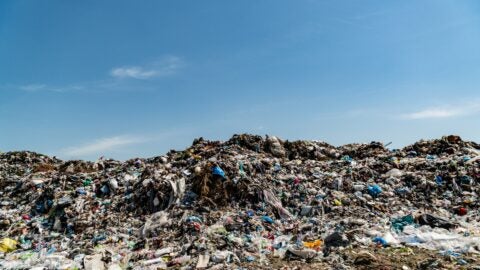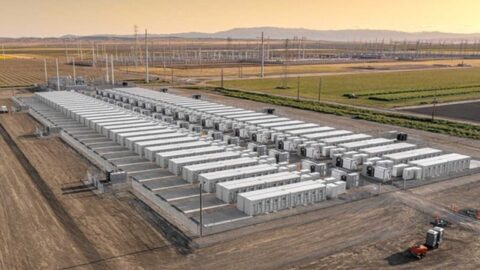Trump Undermining Jobs That Conserve Natural Gas, But States Should Create Them
 The biggest irony of the Trump Administration’s attack on environmental safeguards is that it will undermine a central promise of his candidacy: supporting boots on the ground, American jobs in growth sectors. One prime example? The emerging service industry that puts people to work finding and fixing harmful natural gas leaks.
The biggest irony of the Trump Administration’s attack on environmental safeguards is that it will undermine a central promise of his candidacy: supporting boots on the ground, American jobs in growth sectors. One prime example? The emerging service industry that puts people to work finding and fixing harmful natural gas leaks.
American workers in the methane mitigation industry keep the product, methane (the main ingredient in natural gas), in the pipes and out of the sky. That’s a win for workers, who receive technology training, competitive wages, and opportunities for upward mobility. It’s a win for surrounding communities, as methane emission reductions also help keep smog-forming pollutants out of the air they breathe. It’s a win for oil and gas operators, which make operations more efficient and improve safety. And it’s a win for the climate, since methane is 84 times more potent in the near term than carbon dioxide.
In other words, if winning were more than a campaign slogan, supporting America’s methane mitigation industry would be an obvious opportunity to seize. Unfortunately, President Trump’s anti-jobs approach to undermining methane safeguards does just the opposite.
In attempting to justify rollbacks, the Trump Administration trotted out the familiar argument that environmental safeguards cost jobs. But in reality, the opposite is often true.
Datu Research, in a new report commissioned by Environmental Defense Fund, studied the leak detection and repair service industry by speaking with employers and workers in states like Pennsylvania, New Mexico, and Texas. Importantly, Datu found that “rules cutting methane emissions create jobs cutting methane emissions”.
Safeguards requiring methane leak detection and repair increase market demand for those services, thus supporting opportunities for workers including high school graduates to get trained in infrared camera inspection technology.
In fact, mitigation firms reported as much as 30% growth in states with methane regulations. And, companies interviewed by Datu reported plans to grow their workforce by as much as 15% annually.
In other words: More methane safeguards = More leak detection jobs. Fewer methane safeguards = Fewer leak detection jobs.
For an Administration allegedly committed to job creation, it’s baffling why President Trump would move to put such valuable American jobs at risk. All the more so when you consider that 55% of leak detection service companies are small businesses – the growth engine of the America.
Yet, where the Trump Administration falls down, state leaders can stand up for good jobs and a healthy environment.
One immediate opportunity arises in Pennsylvania, where Governor Tom Wolf has committed to cut methane emissions from new and existing sources. With four methane mitigation businesses already headquartered in Pennsylvania, and 11 companies operating in the state, Pennsylvania is poised for significant growth.
Or take New Mexico, a state that unfortunately leads the nation in unemployment rate, but where small businesses like Dexter – who employs a majority Native American leak detection and repair crew to cut methane waste – offer needed job growth. As oil and gas production continues to heat up in the resource-rich Permian Basin, New Mexico’s leaders will have the opportunity and obligation to establish the policy environment in which industry operates responsibly and more methane mitigation jobs are created.
As governors and state legislatures square their energy mix with the dual needs of job creation and environmental protection, supporting an industry that makes oil and gas cleaner should be an easy answer.
American workers don’t want potential jobs to slip through their fingers like lost methane into the atmosphere. After all, that’s not what winning looks like.












